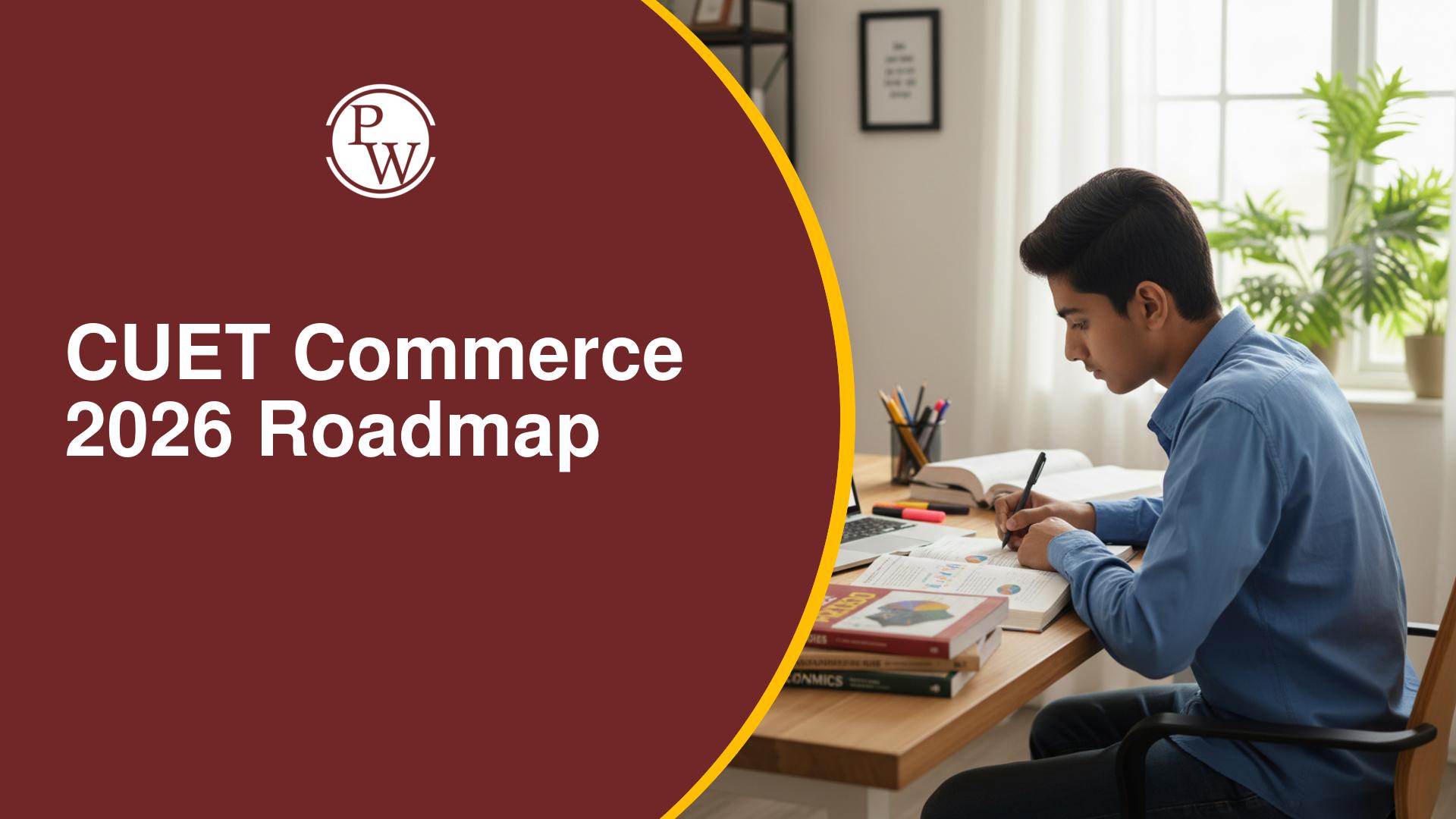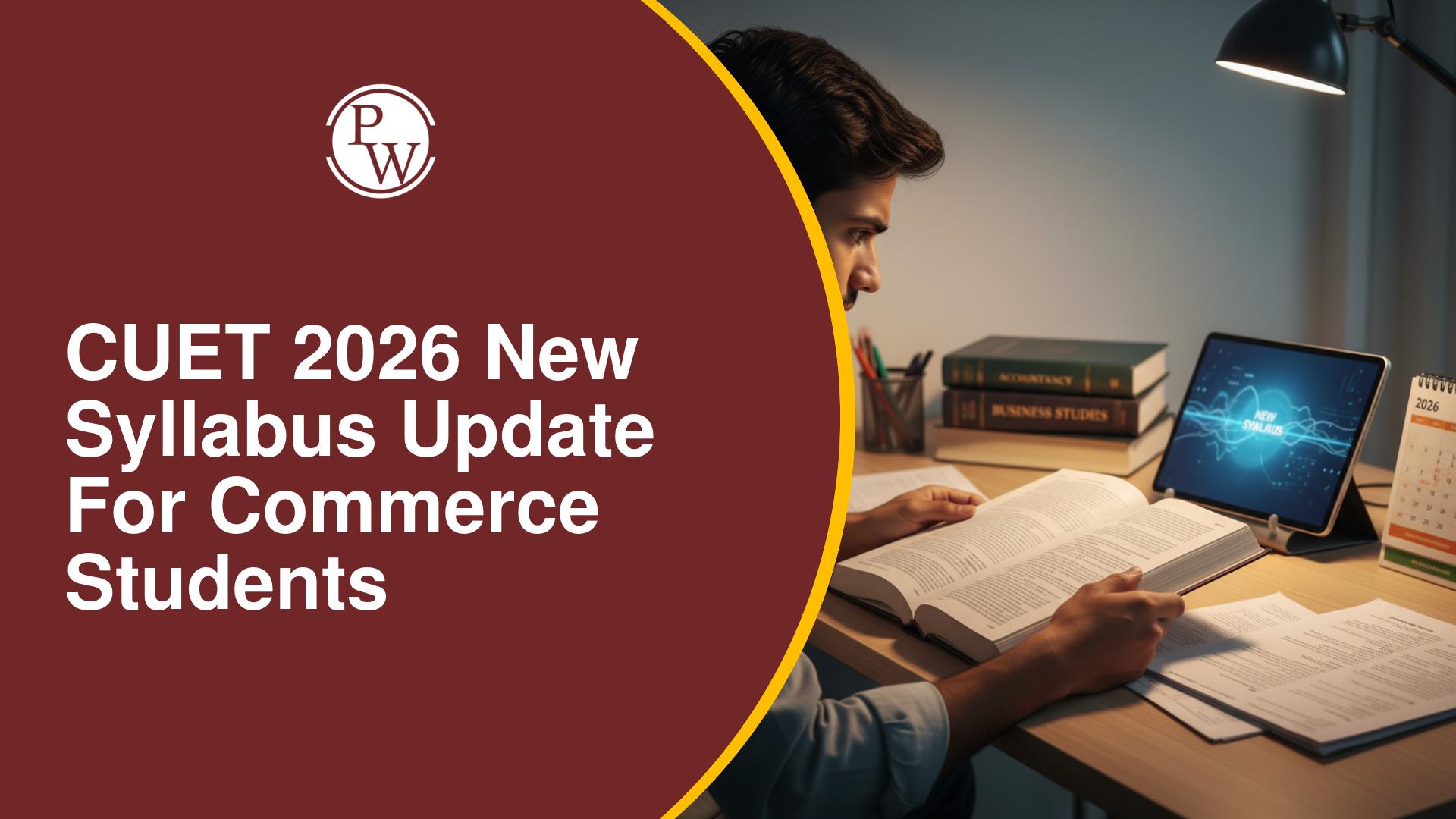
Class 11th Accountancy: Preparing for Class 11th exams can be daunting, especially when it comes to subjects like Accountancy. To assist you in your preparation journey, we have curated a comprehensive list of the top 20 Class 11th Accountancy Important Questions and Answers. These questions have been carefully selected to give you a clear understanding of the types of questions that may appear in the exam.
By solving these sample questions, you will not only familiarize yourself with the exam pattern but also enhance your overall preparation levels. So, dive into these questions and gear up for success in your Class 11 Accountancy exams!Top 20 Class 11th Accountancy Questions With Answers
Before diving into your preparation journey, it's crucial to acquaint yourself with the comprehensive Class 11 Accountancy Syllabus . This step will guide you towards understanding the pivotal topics essential for exam success. Explore the following Top 20 Class 11th Accountancy Questions derived from the introductory section of accounting topics, ensuring a solid foundation for your preparation. Here are some important Class 11th Accountancy questions and answers for 2024: Question 1. What is accounting? Answer: Accounting is the systematic process of recording, summarizing, analyzing, and interpreting a business's financial transactions. It involves the preparation of financial statements such as the balance sheet, income statement, and cash flow statement to provide insight into the financial health and performance of the organization. Question 2. What are the functions of accounting? Answer: Accounting serves several key functions essential for the effective management of a business. These include:- Recording: Documenting all financial transactions accurately and systematically.
- Classifying: Organizing transactions into categories such as assets, liabilities, equity, income, and expenses.
- Summarizing: Compiling financial data into reports such as balance sheets and income statements to provide a clear overview of the company's financial position.
- Interpretation: Analyzing financial information to identify trends, patterns, and areas of concern or improvement.
- Communication: Presenting financial data to stakeholders such as investors, creditors, and management through reports and presentations.
- Decision-making: Assisting management in making informed decisions based on financial analysis and projections.
- Language: Accounting serves as the language of business, facilitating communication and understanding among stakeholders.
- Historical record: It provides a historical record of financial transactions, which can be used for analysis, comparison, and decision-making.
- Service provider: Accountants provide essential services such as bookkeeping, financial reporting, auditing, and tax preparation to businesses and individuals.
- Information system: Accounting systems collect, process, and disseminate financial information to support decision-making processes.
- Determining net profit: Accounting helps calculate the net profit or loss of a business by comparing revenues and expenses over a specific period.
- Financial Accounting : Focuses on recording and reporting financial transactions to external stakeholders such as investors, creditors, and regulatory authorities.
- Cost Accounting : Involves analyzing and controlling the costs of production, distribution, and selling of goods and services within a business.
- Management Accounting: Provides internal stakeholders with financial information and analysis to support strategic planning, budgeting, and decision-making.
- Tax Accounting: Deals with preparing tax returns and ensuring compliance with tax laws and regulations.
- Social Responsibility Accounting: Evaluates and reports on the social and environmental impact of a company's operations, including its corporate social responsibility initiatives.
- Debtors: Debtors are individuals or entities that owe money to the company for goods or services purchased on credit. They represent accounts receivable on the company's balance sheet.
- Creditors: Creditors are individuals or entities to whom the company owes money for goods or services received on credit. They represent accounts payable on the company's balance sheet.
- Cash Basis: This method records revenue and expenses when cash is actually received or paid. It does not consider credit transactions or accounts receivable/payable.
- Accrual Basis: This method records revenue and expenses as they are earned or incurred, regardless of the date cash is received or paid. It recognizes transactions as they occur, providing a more accurate depiction of a company's financial position.
| Aspect | Accrual Basis | Cash Basis |
| Recognition of Revenue and Expenses | Revenue recognized when earned; expenses when incurred | Revenue recognized when cash received; expenses when cash paid |
| Treatment of Non-Cash Transactions | Records non-cash transactions (e.g., credit sales) | Only considers cash transactions |
| Compliance with Accounting Standards | Adheres to GAAP and IFRS | May not comply with GAAP and IFRS |
| Differentiation of Capital and Revenue Items | Distinguishes between capital and revenue items | Does not distinguish between capital and revenue components. |
Q uestion 9. What are the basic accounting equations? How do you calculate Capital and Liabilities?
Answer: The basic accounting equation is: Assets = Liabilities + Equity This equation states that the total assets of a business are equal to the sum of its liabilities and equity. To calculate capital, subtract liabilities from assets: Capital = Assets - Liabilities To calculate liabilities, subtract equity from assets: Liabilities = Assets - Equity Question 10. Explain GST. Answer: GST , or Goods and Services Tax, is a value-added tax levied on the consumption of goods and services. It is a destination-based tax system where tax is collected at each stage of the supply chain and is ultimately borne by the end consumer. GST replaces multiple indirect taxes such as excise duty, service tax, and VAT, simplifying the tax structure and promoting ease of doing business. Question 11. What is IFRS? Answer: International Financial Reporting Standards (IFRS) are a set of accounting standards issued by the International Accounting Standards Board (IASB). They provide a common global language for financial reporting, ensuring transparency, comparability, and consistency in financial statements across different countries and industries. IFRS aims to enhance the quality, relevance, and reliability of financial information, thereby facilitating international investment and economic growth. Question 12. What are the different types of liabilities? Answer: Liabilities represent the obligations or debts owed by a company to external parties. The various types of liabilities include:| Type | Description | Examples |
| Current Liabilities | Debts or obligations due within one year | Accounts payable, short-term loans, accrued expenses |
| Non-current Liabilities | Debts or obligations not due within the current operating cycle or fiscal year | Long-term loans, bonds payable, deferred tax liabilities |
| Internal Liabilities | Obligations owed to internal stakeholders | Shareholders' equity, retained earnings |
| External Liabilities | Obligations owed to external parties | Creditors, suppliers, lenders |
- Debit and Credit: An increase in assets or expenses is recorded as a debit entry, while a decrease is recorded as a credit entry.
- Principle of Conservatism: When uncertain about the valuation or recognition of an asset or expense, accountants should err on the side of caution and recognize losses or impairments promptly, ensuring that financial statements reflect a conservative estimate of the company's financial position and performance.
| Date | Particulars | Ledger Folio (L.F.) | Debit Amount | Credit Amount |
| [Date] | [Description] | [L.F. number] | [Debit amount] | [Credit amount] |
- Purchase Book: Records purchases of goods for resale or production.
- Sales Book: Records sales of goods or services to customers.
- Cash Book: Records cash transactions, including receipts and payments.
- Purchase Return Book (Return Outwards): Records returns of goods to suppliers.
- Sales Return Book (Return Inwards): Records returns of goods from customers.
- Journal: Records miscellaneous transactions that do not fit into other specialized journals.
- Single Column Cash Book: Contains a single column for recording cash transactions.
- Double Column Cash Book: Contains separate columns for cash and bank transactions.
- Three-Column Cash Book: Contains columns for cash, discount, and bank transactions.
- Petty Cash Book: Used to record small, miscellaneous cash expenses or payments, typically maintained for minor expenditures and replenished periodically.
- General Reserve: A reserve created out of profits to strengthen the financial position of the company or to meet future contingencies.
- Specific Reserve: A reserve earmarked for a particular purpose, such as a provision for doubtful debts or a reserve for repairs and maintenance.
- Capital Reserve: A reserve created from capital profits, such as the proceeds from the sale of fixed assets or revaluation of assets, which cannot be distributed as dividends.
- Revenue Reserve: A reserve created from revenue profits, such as retained earnings or accumulated profits from operations, available for distribution as dividends or reinvestment in the business.
Also Read: Accountancy MCQs for Class 11 and 12
How to Solve Class 11th Accountancy Questions?
Here are the top expert tips and tricks for solving Class 11th Accountancy Questions:- Understand the Question: Read the Class 11th Accountancy question carefully to grasp what it's asking for. Pay attention to keywords and instructions provided in the question to ensure you address all aspects.
- Review Relevant Concepts: Review the relevant concepts covered in your Class 11th Accountancy syllabus that are related to the question. Make sure you understand the underlying principles and theories to solve the problem accurately.
- Organize Your Approach: Plan how you will tackle the question. Break it down into smaller parts if necessary, and decide on the steps you need to take to arrive at the solution. This helps to ensure a structured and systematic approach to problem-solving.
- Apply Formulas and Techniques: Apply the appropriate formulas, methods, or techniques learned in your Class 11th Accountancy studies to solve the question. Use relevant accounting principles and rules to analyze the given data and arrive at the solution.
- Check Your Work: Once you've solved the Class 11th Accountancy question, review your solution to ensure accuracy. Double-check calculations, verify answers against the question requirements, and make any necessary revisions. This step helps to catch any errors and ensures that your solution is complete and correct.
Also Read: Class 11 Accountancy Overview, Syllabus, NCERT Solutions, Tips
Therefore, these top 20 Class 11th Accountancy questions for 2024 offer invaluable preparation resources for students. Covering a wide range of topics, from fundamental principles to advanced analyses, these questions help students enhance their understanding and excel in their exams. Furthermore, PhysicsWallah (PW) stands out as the go-to coaching institute for commerce students. With its stellar faculty and innovative teaching methods, PW ensures students receive a top-notch education, paving the way for academic excellence and future success in the commerce stream. Join the PW Commerce Online Course now and pave your way to success in commerce!Class 11th Accountancy FAQs
How can I excel in Class 11 Accountancy?
Ensure that you dedicate at least one hour daily to studying accountancy. Practice solving 4-5 questions from the previous year's papers daily to improve your speed and calculations. Focus on understanding the merits and demerits of theory concepts to score well in the theory part. Also, for the Top 20 Class 11th Accountancy Questions, check the above article.
Which chapter is the most challenging in Class 11 Accountancy?
Depreciation, Provisions, and Reserves, the seventh chapter of the Class 11 accountancy syllabus, is considered one of the longest and most difficult chapters. However, with consistent practice and dedication, you can master this topic. Also, for the Top 20 Class 11th Accountancy Questions with answers, check the above article.
What are some important accounting questions?
Some essential accounting questions include topics like journal entries, trial balances, financial statements, depreciation, cash flow statements, and partnership accounting. Solving these questions helps in understanding key concepts and prepares you for exams. Also, for Top 20 Class 11th Accountancy Questions, check the above article.
Is it possible to score 100 in Accountancy?
Achieving a perfect score (centum) in Accountancy is possible, but it requires a thorough understanding of the subject and careful preparation according to the question paper's requirements. Also, for the Top 20 Class 11th Accountancy Questions with answers, check the above article.
Who is considered the father of accounting?
Luca Pacioli, an Italian mathematician and Franciscan friar, is widely regarded as the father of accounting. He was the first to publish detailed material on the double-entry system of accounting and collaborated with Leonardo da Vinci. Also, for the Top 20 Class 11th Accountancy Questions with answers, check the above article.
🔥 Trending Blogs
Talk to a counsellorHave doubts? Our support team will be happy to assist you!

Check out these Related Articles
Free Learning Resources
PW Books
Notes (Class 10-12)
PW Study Materials
Notes (Class 6-9)
Ncert Solutions
Govt Exams
Class 6th to 12th Online Courses
Govt Job Exams Courses
UPSC Coaching
Defence Exam Coaching
Gate Exam Coaching
Other Exams
Know about Physics Wallah
Physics Wallah is an Indian edtech platform that provides accessible & comprehensive learning experiences to students from Class 6th to postgraduate level. We also provide extensive NCERT solutions, sample paper, NEET, JEE Mains, BITSAT previous year papers & more such resources to students. Physics Wallah also caters to over 3.5 million registered students and over 78 lakh+ Youtube subscribers with 4.8 rating on its app.
We Stand Out because
We provide students with intensive courses with India’s qualified & experienced faculties & mentors. PW strives to make the learning experience comprehensive and accessible for students of all sections of society. We believe in empowering every single student who couldn't dream of a good career in engineering and medical field earlier.
Our Key Focus Areas
Physics Wallah's main focus is to make the learning experience as economical as possible for all students. With our affordable courses like Lakshya, Udaan and Arjuna and many others, we have been able to provide a platform for lakhs of aspirants. From providing Chemistry, Maths, Physics formula to giving e-books of eminent authors like RD Sharma, RS Aggarwal and Lakhmir Singh, PW focuses on every single student's need for preparation.
What Makes Us Different
Physics Wallah strives to develop a comprehensive pedagogical structure for students, where they get a state-of-the-art learning experience with study material and resources. Apart from catering students preparing for JEE Mains and NEET, PW also provides study material for each state board like Uttar Pradesh, Bihar, and others
Copyright © 2026 Physicswallah Limited All rights reserved.









